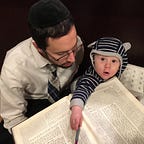The Less Evil Than Bias
While the human mind is indeed a powerful tool, it is also subject to many biases, one of the most powerful being the bias of self-righteousness.
No two people are exactly alike, and as careful as we might be to interact with like-minded individuals (so that they can confirm that our views are correct), disagreements are as inevitable as the setting of the sun. So, who was in the right? Well, me, of course! On rare occasions, we might admit that we had a small part in creating the mess around us, but it’s challenging for us to truly see our flaws in action. But the other person you ask, their flaws are overwhelming, their actions inexcusable, and their idiosyncrasies simply intolerable.
In a 2016 essay (journal of personality and social psychology), Nadav Klein and Nicholas Epley presented careful research that shows that the self-righteous bias tends to gloss over our shortcomings, i.e., we see ourselves as less evil, but not necessarily holier than the other. In other words, we may humbly believe others to be better than we are, but when they do slip up, we are quick to condemn. We, on the other hand, oh, we were tired, starving, had just been through a rough time; of course, we meant no harm!
Wouldn’t it be nice if, like a program that clears the cookies from our devices, we could hit the clear button on our bias towards ourselves? Well, we do have just such an opportunity; it’s called Yom Kippur. Just hours ago, we stood before Hashem in a state of purity. Our self didn’t hide even one shortcoming from our mind’s eye, and everything was laid bare before the One who knows it all — Hashem.
If there ever was a time for clear vision, it is today. It is time to look back at our personal history and see where we, and not others, were responsible. With clarity of vision and purity of heart, we can be accepting instead of condemning, embracing instead of shunning, and forgiving instead of blaming.
Of all our relationships, one is most fundamental, and that is our relationship with Hashem. Therefore, on the Shabbos following Yom Kippur, we read the song of Haazinu. While our minds are clear, we look back at history and recognize all the kindness and love. We also realize that, at times, we got complacent, went astray, and needed to be chided back to the straight path.
Perhaps most importantly, we come to terms with the idea that we are limited, and some things are just beyond human comprehension. And so we say, “The Rock is perfect and all of His ways just.”
Having just concluded the song of Haazinu, we enter the Sukkah, which reminds us that for Hashem, an inhospitable desert is just the same as a lush valley.
Wherever life takes us, whatever is going on in the world around us, our hearts can be a sanctuary of peace when we have trust in our Rock, Hashem.
